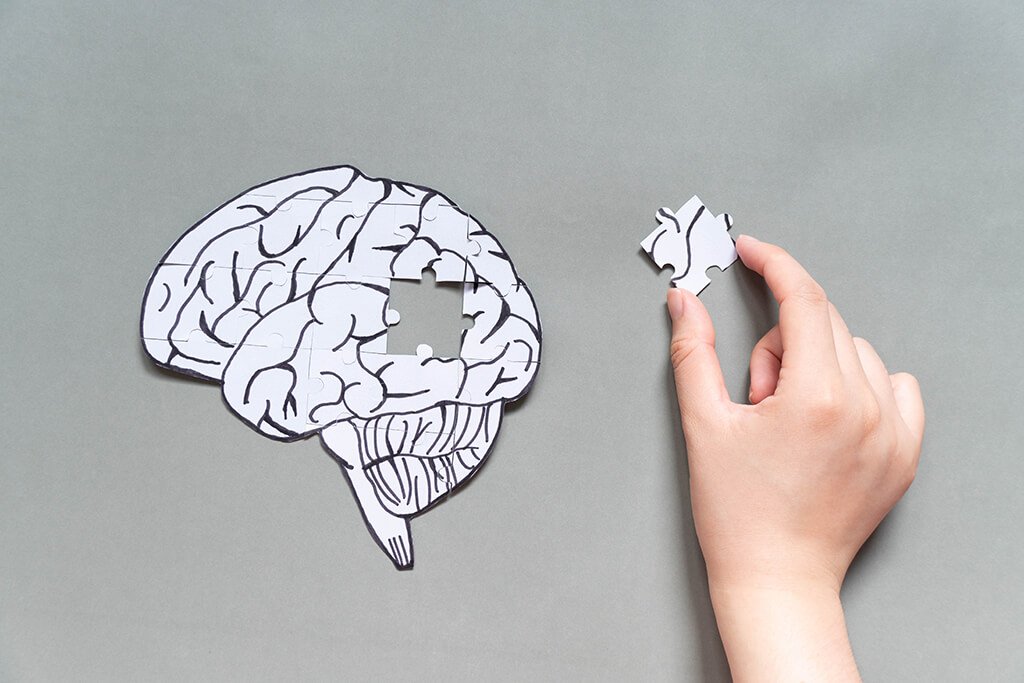Neurological dysfunction is a disorder of the brain, spinal or nervous system, which can result in both physical and psychological problems. Common neurological disorders include Ataxia, Alzheimer’s Disease, Bell’s Palsy, chronic headaches/migraines.
Neurological autoimmune diseases are immune inflammations of the central nervous system and include multiple sclerosis, myasthenia gravis, and Guillain-Barré syndrome.
An integral part of the functional medicine approach is providing patients with improved nutrition and nutraceutical supplements to optimize nerve function. I work with my patients to identify and remove environmental toxins—a necessary component in a successful treatment program for neurological issues.
Symptoms of Neurological Dysfunction
The symptoms of a neurological condition can range from subtle to severe, including:
- Weakness
- Loss of sensation
- Double vision
- Headaches
- Lack of coordination
- Memory loss
- Seizures
- Paralysis (partial or complete)
Ataxia
Ataxia is a degenerative disease that affects the nervous system and the brain. The disease damages parts of the brain that control movement—resulting in symptoms such as lack of coordination, slurred speech, tremors, and difficulty walking. Ataxia can be hereditary or brought on by a head injury or stroke. Physical therapy can help with the symptoms, and many patients with the condition have benefited from CoQ10 supplements and nutrition modification.
Bell’s Palsy
Bell’s Palsy causes temporary weakness of the muscles in the face, causing one side to droop. In most cases, the condition is temporary and subsides after a few weeks. Symptoms include muscle weakness, headache, difficulty eating, and eye irritation. Bell’s Palsy is believed to be caused by a viral or bacterial infection that causes swelling or compression of the seventh cranial nerve. An integrative approach to treatment includes acupuncture and herbal medicine to help reduce inflammation and support nerve repair. Proteolytic enzymes can help with tissue damage, and natural anti-virals such as grapefruit seed extract, oregano oil, and garlic are also very beneficial.
Chronic headaches/migraines
Chronic headaches are defined as occurring for at least 15 days or more in a month. It’s essential to determine if the headaches are symptomatic of another condition such as an infection, pressure on the brain, or a brain injury. Overuse of medications can also lead to chronic headaches. Chronic migraines tend to affect one or both sides of the head with a painful throbbing sensation. Patients become very sensitive to light and sound and may be nauseous. Risk factors for developing this condition include:
- Anxiety
- Depression
- Obesity
- Sleep problems
- Overconsumption of caffeine.
As these headaches keep reoccurring, my approach to treatment includes investigating possible trigger factors in the patient’s environment or lifestyle that may be the source of the problem. Addressing underlying issues such as lack of sleep, poor diet, and lack of exercise can significantly impact patient health and minimize these symptoms. I also recommend specific mineral and vitamin supplements alongside acupuncture, biofeedback, and massage therapies to treat the condition.
Autism Spectrum Disorder
Autism Spectrum Disorder (ASD) is defined as having “persistent difficulties with social communication and social interaction” and “restricted and repetitive patterns of behaviors, activities or interests” according to the DSM-V (a handbook used by health care professionals in the United States). Research into autism seems to indicate widespread disruption on the neural networks of those affected. Brain imaging has found that in some cases, this neural disruption is linked to mitochondrial dysfunction, which opens up new opportunities for successful treatment.
Parkinson’s Disease
Parkinson’s Disease (PD) is a neurological disorder that affects the central nervous system. Nerve cell damage in the brain causes a drop in dopamine levels. The symptoms of Parkinson’s include shaking, stiffness, difficulty with walking, balance, and coordination. The symptoms often start with a tremor in one hand and gradually get worse over time. Functional medicine looks beyond the traditional drug-based treatment for PD. It approaches the condition at a cellular level, finding the source of the inflammation, whether it’s due to poor nutrition or chemical exposure in the environment.
Alzheimer’s Disease
As defined by the Alzheimers Association, Alzheimer’s is a type of dementia that affects memory, thinking, and behavior. Symptoms eventually grow bad enough to interfere with daily tasks. The connections between brain cells break down, destroying memory and other mental functions. Alzheimer’s is the third leading cause of death in the US, and traditional medicine has not found a cure.
Alzheimer’s Disease is a classic example of where functional medicine, with its holistic approach, can offer solutions that conventional medicine cannot. This is because Alzheimer’s is caused by a combination of factors, including poor diet, a stressful lifestyle, low exercise level, and mental health problems. In fact, Alzheimer’s Disease is now being referred to as Type 3 Diabetes. Early prevention is ideal, but even with early detection of symptoms, patients can slow or even reverse the condition’s progress through my functional medicine treatment program.
Take control of your health
My clinic offers an integrated approach to healthcare, combining the best of conventional medicine with the benefits that only functional medicine can offer. Contact my clinic today for a Caregiver Clarity Call and start your journey to wellness.





